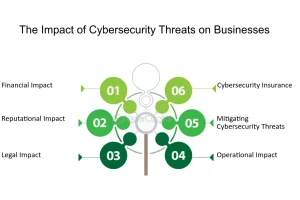In today’s digital age, where businesses rely heavily on technology for operations, the need for robust security measures has never been greater. This is where focus security services come into play. Security intelligence services are crucial for identifying, analyzing, and mitigating potential security threats that could jeopardize a company’s operations, assets, and reputation. In this article, we’ll explore the intricate relationship between security intelligence services and share price dynamics.
Understanding Share Price Dynamics
Share prices are influenced by a multitude of factors, ranging from macroeconomic conditions to company-specific news and events. However, one often overlooked aspect is the role of security intelligence in shaping share price movements. Companies that prioritize security intelligence are better equipped to handle potential threats, thus instilling confidence in investors and stakeholders.
Impact of Security Threats
In today’s interconnected world, security threats come in various forms, with cyberattacks being one of the most prevalent. A single security breach can have far-reaching consequences, leading to financial losses, reputational damage, and regulatory scrutiny. For instance, a data breach resulting in customer information leakage can severely impact consumer trust and investor confidence, ultimately reflecting in share prices.

Role of Security Intelligence Services
The “Role of Security Intelligence Services” refers to the functions and responsibilities that these services undertake to safeguard against security threats. It encompasses a range of activities aimed at gathering, analyzing, and interpreting information to identify potential risks and vulnerabilities to an organization’s security infrastructure. Below are the key aspects of the role of security intelligence services:
- Monitoring Threats: Security intelligence services continuously monitor various sources such as network traffic, system logs, and external threat feeds to identify any abnormal activities or potential security breaches.
- Predictive Analysis: By analyzing historical data and patterns, security intelligence services can predict potential future threats and vulnerabilities, allowing organizations to proactively implement preventive measures.
- Incident Response: In the event of a security breach or incident, security intelligence services play a crucial role in providing timely and effective response strategies. This involves containing the breach, mitigating the damage, and restoring systems to normal operations.
- Early Detection: One of the primary functions of security intelligence services is to detect security threats at an early stage, before they escalate into major incidents. This early detection enables organizations to take prompt action to prevent or minimize the impact of the threat.
- Rapid Response: Security intelligence services must have mechanisms in place to respond swiftly to emerging threats or incidents. This includes deploying resources, implementing security protocols, and coordinating with relevant stakeholders to address the situation effectively.
- Proactive Measures: Apart from responding to immediate threats, security intelligence services also focus on implementing proactive measures to strengthen the overall security posture of an organization. This may include vulnerability assessments, penetration testing, and security awareness training for employees.
- Collaboration and Information Sharing: Security intelligence services often collaborate with other organizations, including law enforcement agencies, industry peers, and security vendors, to share threat intelligence and best practices. This collaboration enhances the collective ability to combat security threats effectively.
Case Studies
Numerous case studies illustrate the effectiveness of security intelligence services in safeguarding companies against security threats. For example, a multinational corporation experienced a targeted phishing attack, potentially compromising sensitive data. However, due to the proactive measures implemented by their security intelligence team, the attack was swiftly detected and neutralized, preventing any significant damage to the company’s reputation and share prices.
UAEfinders is a premier digital platform dedicated to connecting businesses and individuals with valuable resources and opportunities within the United Arab Emirates. By leveraging advanced search technologies and an extensive database, UAEfinders facilitates streamlined access to essential services, industry contacts, and market insights. This innovative tool enhances business efficiency and networking capabilities, ensuring users stay ahead in the competitive UAE market. With its user-centric design and robust features, UAEfinders is an indispensable asset for anyone seeking to thrive in the UAE business landscape.
Investor Confidence and Share Prices
Investors place a premium on companies that demonstrate a commitment to security and risk management. Companies with robust security intelligence measures in place are viewed as more reliable and trustworthy, thereby attracting investor interest and bolstering share prices. Conversely, companies that neglect security considerations may face heightened scrutiny from investors, leading to valuation discounts and potential sell-offs.
Market Perception and Valuation
The market perception of a company’s security posture can significantly impact its valuation. Companies perceived as vulnerable to security threats are often undervalued compared to their more secure counterparts. Investors are willing to pay a premium for companies with a proven track record of prioritizing security intelligence, as they are seen as better equipped to navigate evolving cybersecurity challenges.

Future Trends
Future Trends” in the context of security intelligence services refer to the anticipated developments and advancements that are likely to shape the landscape of cybersecurity in the coming years. These trends are influenced by emerging technologies, evolving threat landscapes, regulatory changes, and shifting industry dynamics. Below are some key aspects of future trends in security intelligence:
- AI and Machine Learning: Artificial Intelligence (AI) and Machine Learning (ML) are expected to play a significant role in enhancing security intelligence capabilities. These technologies enable automated analysis of vast amounts of data, facilitating quicker detection of anomalies and patterns indicative of potential security threats.
- IoT Vulnerabilities: With the proliferation of Internet of Things (IoT) devices, there is an increasing concern about the security implications associated with these interconnected devices. Future trends in security intelligence will likely focus on addressing IoT vulnerabilities and developing robust security measures to protect IoT ecosystems.
- Regulatory Changes: Regulatory frameworks governing data privacy and security are continuously evolving to keep pace with technological advancements and emerging threats. Future trends in security intelligence will involve adapting to these regulatory changes and ensuring compliance with industry standards and regulations.
- Cloud Security: As organizations increasingly rely on cloud computing and storage solutions, securing cloud-based environments will become a critical priority. Future trends in security intelligence will focus on developing specialized tools and techniques for monitoring, analyzing, and securing cloud infrastructures.
- Zero Trust Architecture: The concept of Zero Trust Architecture, which assumes that no entity, whether inside or outside the organization, should be trusted by default, is gaining traction as a security framework. Future trends in security intelligence will likely involve the adoption and implementation of Zero Trust principles to mitigate insider threats and unauthorized access.
- Quantum Computing Risks: The advent of quantum computing poses unique challenges to traditional encryption methods and security protocols. Future trends in security intelligence will involve researching and developing quantum-resistant encryption algorithms and strategies to mitigate the risks posed by quantum computing.
- Threat Intelligence Sharing: Collaborative threat intelligence sharing among organizations, industries, and government agencies will continue to be an essential aspect of security intelligence. Future trends will focus on enhancing mechanisms for sharing timely and actionable threat intelligence to improve collective defense against cyber threats.
In conclusion, security intelligence services play a crucial role in shaping share price dynamics by mitigating security risks, enhancing investor confidence, and influencing market perception. As businesses navigate an increasingly complex threat landscape, investing in focus security services is imperative for safeguarding assets and maintaining shareholder value. By prioritizing security intelligence, companies can mitigate potential threats, instill investor trust, and drive long-term shareholder value.



